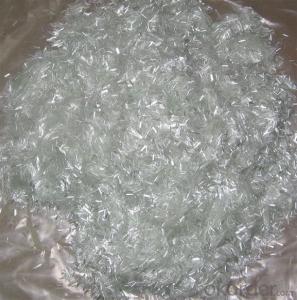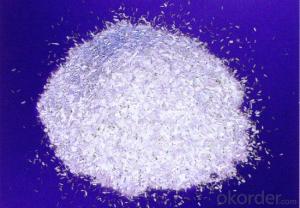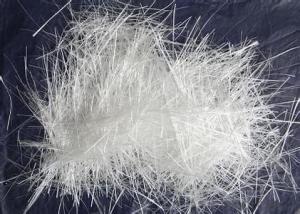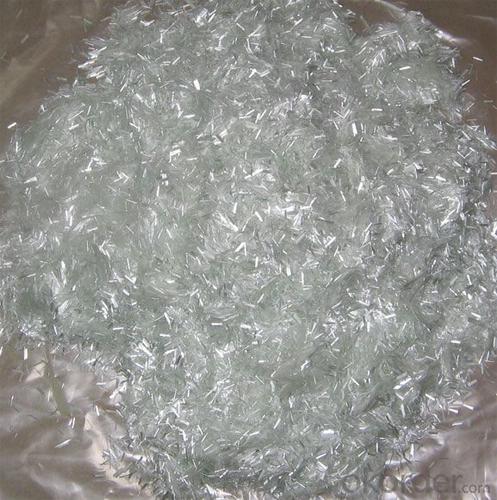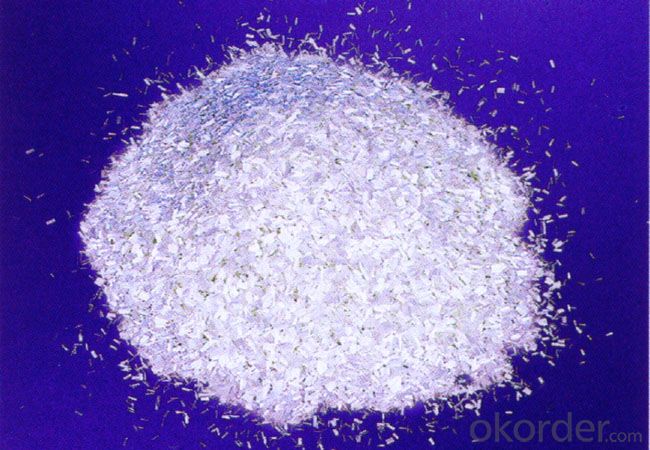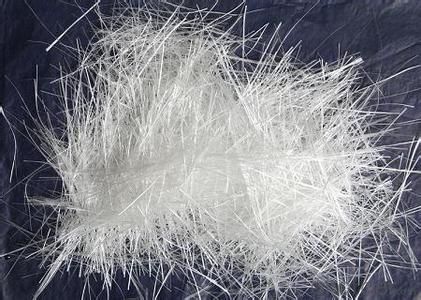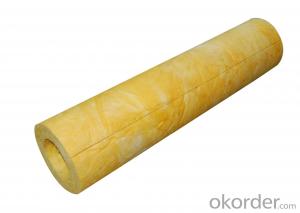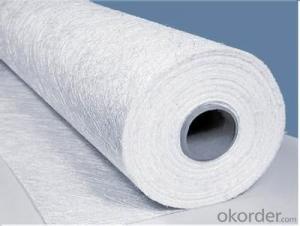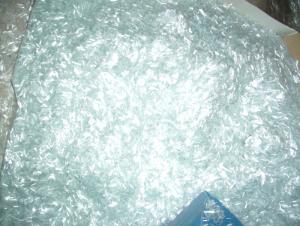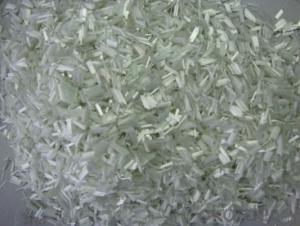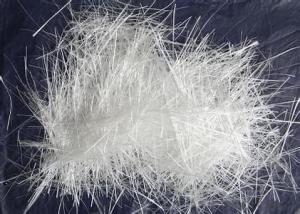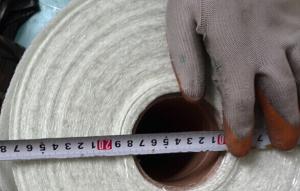Fiberglass Mat Tissue Chopped Strands for BMC Usage
- Loading Port:
- Shanghai
- Payment Terms:
- TT or LC
- Min Order Qty:
- 20000 kg
- Supply Capability:
- 200000Ke Per Month kg/month
OKorder Service Pledge
OKorder Financial Service
You Might Also Like
1.Brief Introductions
Chopped Strands for BMC are compatible with unsaturated polyester, epoxy resin and phenolic resins.
The end-use applications include transportation, building & construction, electronic & electrical, mechanical, and light industry.
2.Product Features
Extremely low resin demand, delivering low viscosity to BMC paste
High impact strength; High LOI rate
High strand stiffness; Compatible with rubber
3.Product Specifications
Property | Fibre diameter | Moisture Content | Size Content | Chop |
(%) | (%) | (%) | (%) | |
Mathods | IS01888 | ISO3344 | ISO1887 | |
3mm | ±10 | ≤3.0 | 0.1±0.05 | 98 |
6mm | ||||
9mm | ||||
12mm |
Special specification can be produce according to customer requirements.
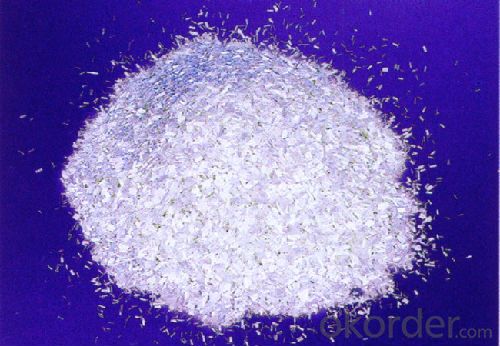
4.FAQ
Packaging:
Each bag can be taken (15-25kgs)。 Could also take a big container bag.
Storage:
Unless otherwise specified, It should be stored in a dry, cool and rain-proof area. It is recommended that the room temperature and humidity should be always maintained at 15℃~35℃ and 35%~65% respectively.
- Q: Are there any health risks associated with fiberglass mat tissue?
- Yes, there are potential health risks associated with fiberglass mat tissue. Fiberglass is made of tiny glass fibers that can be released into the air when the material is cut, sanded, or disturbed. When inhaled, these fibers can cause irritation to the skin, eyes, and respiratory system. Short-term exposure may result in symptoms such as coughing, wheezing, and difficulty breathing. Long-term exposure to fiberglass fibers has been linked to more serious health issues, including lung damage and an increased risk of developing respiratory conditions such as asthma or bronchitis. It is important to take proper precautions, such as wearing protective clothing, goggles, and a mask, when working with fiberglass mat tissue to minimize the risk of exposure and potential health problems.
- Q: Is fiberglass mat tissue resistant to mold growth?
- Yes, fiberglass mat tissue is resistant to mold growth.
- Q: Does fiberglass mat tissue provide any moisture insulation?
- Fiberglass mat tissue indeed offers a certain degree of moisture insulation. Renowned for its water-resistant attributes, fiberglass, when transformed into mat tissue, bolsters this quality even more. By serving as a protective shield, it thwarts the infiltration of moisture, averting potential harm to underlying substances. Nevertheless, it is crucial to recognize that fiberglass mat tissue does not possess absolute waterproofing abilities and might permit some moisture penetration over prolonged periods. Consequently, it is advisable to incorporate supplementary moisture insulation materials in scenarios demanding comprehensive waterproofing.
- Q: How does fiberglass mat tissue perform in terms of moisture resistance?
- Renowned for its exceptional resistance to moisture, fiberglass mat tissue is composed of tightly woven strands of fiberglass that form a formidable barrier against the infiltration of water. This remarkable feature renders it highly efficient in thwarting the permeation of water or moisture, thus safeguarding the integrity of underlying surfaces and structures. Furthermore, the incorporation of resin as a binding agent among the fiberglass strands offers an additional safeguard against moisture, augmenting its ability to withstand water and humidity. Consequently, fiberglass mat tissue emerges as a dependable option for moisture resistance, rendering it ideal for a wide range of applications where the prevention of water damage is of utmost importance.
- Q: Can fiberglass mat tissue be used for insulation in pharmaceutical storage areas?
- Pharmaceutical storage areas can benefit from the use of fiberglass mat tissue for insulation purposes. This versatile material possesses outstanding thermal insulation properties and is widely used in various industries, including pharmaceuticals. Its ability to regulate temperature and provide insulation against heat transfer makes it an excellent choice for these storage areas. In order to preserve the quality and stability of medications and vaccines, maintaining the appropriate temperature is crucial. By reducing heat transfer between different areas and safeguarding the stored products from external temperature fluctuations, fiberglass mat tissue helps create a temperature-controlled environment. Furthermore, fiberglass mat tissue is lightweight, easy to install, and resistant to moisture, making it highly suitable for pharmaceutical storage areas that require cleanliness and hygiene. It can be effortlessly positioned between walls, ceilings, and floors, acting as a barrier against heat flow and effectively maintaining the desired temperature within the storage area. Moreover, fiberglass mat tissue is a non-combustible material, adding an extra layer of safety in pharmaceutical storage areas. It does not contribute to the spread of fire, thus ensuring the protection of valuable pharmaceutical products and minimizing the risk of fire-related accidents. In conclusion, fiberglass mat tissue is a reliable choice for insulation in pharmaceutical storage areas. It offers thermal regulation, moisture resistance, cleanliness, and fire safety, ultimately contributing to the maintenance of the necessary temperature and the preservation of the integrity and stability of stored medications and vaccines.
- Q: Can fiberglass mat tissue be used for composite tooling?
- Yes, fiberglass mat tissue can be used for composite tooling. It is commonly used as a reinforcement material in composite tooling due to its high strength, durability, and ease of use. It helps to provide structural support and stability to the tooling, making it suitable for various applications in the composite industry.
- Q: What are the different finishing options available for fiberglass mat tissue?
- Some of the different finishing options available for fiberglass mat tissue include: resin coating, heat treatment, laminating, and surface texturing. These options can enhance the strength, durability, and appearance of the fiberglass mat tissue based on specific requirements and applications.
- Q: Is fiberglass mat tissue compatible with different adhesives?
- Yes, fiberglass mat tissue is compatible with different adhesives.
- Q: What is the abrasion resistance of fiberglass mat tissue?
- Fiberglass mat tissue exhibits a relatively high level of abrasion resistance due to its composition. Comprised of finely woven or pressed glass fibers, this material possesses exceptional strength and durability, rendering it highly resistant to abrasion. Consequently, fiberglass mat tissue demonstrates remarkable resilience when exposed to friction or contact with other surfaces, as it remains resistant to wear, tear, or damage. It maintains its structural integrity even under harsh scraping, scratching, or rubbing conditions. As a result, fiberglass mat tissue finds widespread use in various industries, particularly in construction for reinforcing concrete and in composite material manufacturing, where the need for abrasion resistance is paramount.
- Q: What is the lifespan of fiberglass mat tissue?
- The lifespan of fiberglass mat tissue can vary depending on factors such as the quality of the material, environmental conditions, and proper maintenance. However, on average, fiberglass mat tissue can last anywhere from 20 to 30 years.
Send your message to us
Fiberglass Mat Tissue Chopped Strands for BMC Usage
- Loading Port:
- Shanghai
- Payment Terms:
- TT or LC
- Min Order Qty:
- 20000 kg
- Supply Capability:
- 200000Ke Per Month kg/month
OKorder Service Pledge
OKorder Financial Service
Similar products
Hot products
Hot Searches
Related keywords
